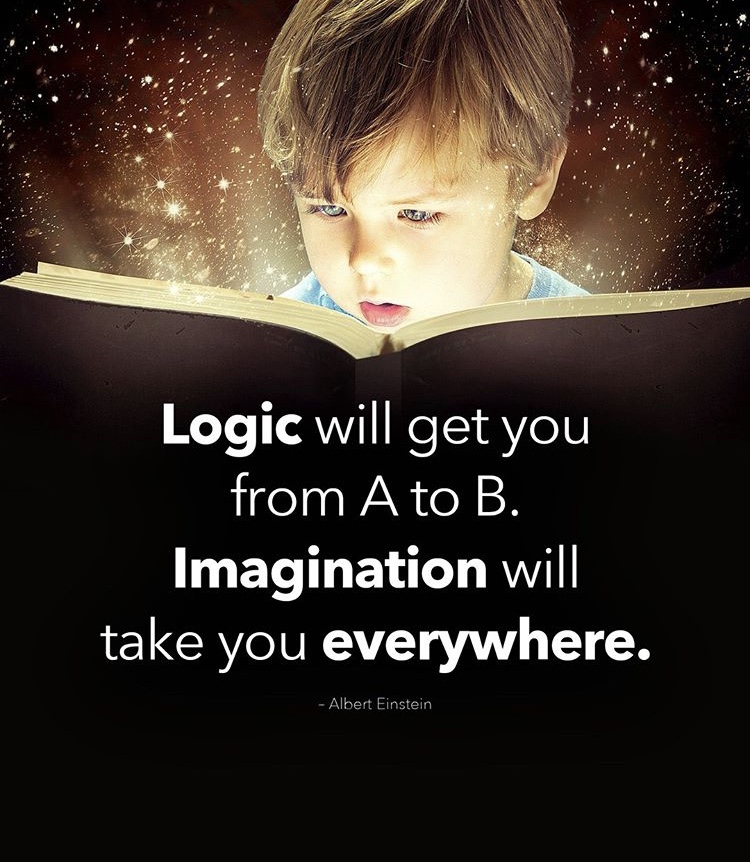It’s no secret that I’m a huge Star Trek fan. Because of a quirk of circumstance, it’s actually documented that I was a fan when I was just three years old and the original series itself was only a few months old. In one of the movies – the sixth one for the original series: “Undiscovered Country,” Spock tells Lt. Valeris that logic is not everything. “Logic, logic and logic,” he says. “Logic is the beginning of wisdom, Valeris. Not the end of it.”
 Recently I was reminded that logic is a necessary part of thinking. Logic is required for planning. Logic allows you to anticipate what’s coming and offers options for best methods for dealing with what comes. Logic allows you to measure the viability and value of various choices and courses of action. Logic, however, requires analysis and that takes time. No matter how fast you think, if you have to consider and choose from multiple options, it takes time. Logic is a conscious protocol. Our subconscious minds are not, and by default cannot be, logical. Logic is pure. It is free of partiality, favoritism, emotion and more. Logic allows you to look at a given set of circumstances, analyze them as they are, examine anticipated responses to your series of optional actions, and then execute the action that offers the most desirable anticipated outcome.
Recently I was reminded that logic is a necessary part of thinking. Logic is required for planning. Logic allows you to anticipate what’s coming and offers options for best methods for dealing with what comes. Logic allows you to measure the viability and value of various choices and courses of action. Logic, however, requires analysis and that takes time. No matter how fast you think, if you have to consider and choose from multiple options, it takes time. Logic is a conscious protocol. Our subconscious minds are not, and by default cannot be, logical. Logic is pure. It is free of partiality, favoritism, emotion and more. Logic allows you to look at a given set of circumstances, analyze them as they are, examine anticipated responses to your series of optional actions, and then execute the action that offers the most desirable anticipated outcome.
Here’s the challenge: Logic cannot anticipate the unexpected. The unexpected, by definition, isn’t logical. To react with any type of speed to the unexpected, abstract thought and imagination are absolutely necessary. The subconscious mind embraces and leverages the value of abstract thinking; the ability to connect two things that are seemingly unrelated. Logic may not see the relationship, but the abstract mind does and that is a requisite strength in reacting to the unexpected.
 Often paraphrased as, “No plan survives first contact with the enemy,” Helmuth von Moltke the Elder’s statement was actually, “no plan of operations extends with any certainty beyond the first contact with the main hostile force.” Both mean the same thing. Sure, they mean that the best plan in the world won’t last for very long once any action or operation is underway, but more than that, they mean that abstract thinking – the ability to improvise and adapt on the fly – is imperative for success.
Often paraphrased as, “No plan survives first contact with the enemy,” Helmuth von Moltke the Elder’s statement was actually, “no plan of operations extends with any certainty beyond the first contact with the main hostile force.” Both mean the same thing. Sure, they mean that the best plan in the world won’t last for very long once any action or operation is underway, but more than that, they mean that abstract thinking – the ability to improvise and adapt on the fly – is imperative for success.
When you think about it though, that means that the truly successful people are those who can plan properly… thoroughly. They can identify the necessary logical steps to achieve the desired outcome; to accomplish the mission, so to speak. All of those plans will start with Step A and then move to Step B, but depending on the outcome of Step A there will more than likely always be Step B1 and Step B2. There’s no way of knowing which will be required. That depends on the outcome of Step A’s action. Now, project that concept down a few layers…

- Step A
- Step B1, Step B2
- Step C1, Step C2, Step C3, Step C4
- Step D1, D2, D3, D4, D5, D6, D7, D8
- Step E… well, there are 16 of them.
- Step F jumps to 32.
So, as the event in question unfolds, the conscious mind would have to perceive and adjust to (potentially) 60 variables at just six levels of adjustment into the plan execution. The challenge is that the conscious mind is limited in its function. Data comes in sequentially – 1, 2, 3, 4, 5, 6, 7 and so on. The conscious mind processes the data as it comes in with a maximum number of variables somewhere between seven and ten… and then data starts to get lost. The conscious mind has its limits.
 The subconscious mind, on the other hand, can process an immeasurable amount of data and doesn’t have to process them sequentially. Using the example above, if there are sixty pieces of data, the necessary bits to process for success might be 1, 2, 5, 11, 28 and 53. The subconscious mind can make the connections and anticipate the results of seemingly random selections.
The subconscious mind, on the other hand, can process an immeasurable amount of data and doesn’t have to process them sequentially. Using the example above, if there are sixty pieces of data, the necessary bits to process for success might be 1, 2, 5, 11, 28 and 53. The subconscious mind can make the connections and anticipate the results of seemingly random selections.
So, what’s the lesson? The lesson is that logic is necessary but so is imagination. Abstract thinking and the ability to connect seemingly disconnected pieces of information are necessary. The thing is… logic is valuable but without imagination, high levels of success are impossible.
